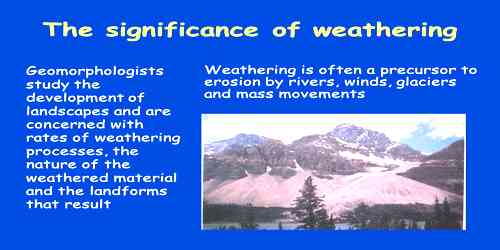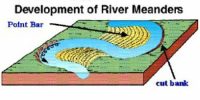Significance of Weathering
Weathering processes are responsible for breaking down the rocks into smaller fragments and preparing the way for the formation of not only regolith and soils but also erosion and mass movements. It breaks rocks into their mineral components. It also creates new compounds through chemical changes.
Biomes and bio-diversity is basically a result of forests (vegetation) and forests depend upon the depth of weathering mantles. Erosion cannot be significant if the rocks are not weathered. That means weathering aids mass wasting, erosion, and reduction of relief and changes in landforms are a consequence of erosion. Weathering of rocks and deposits helps in the enrichment and concentrations of certain valuable ores of iron, manganese, aluminum, copper etc., which are of great importance for the national economy. It is an important process in the formation of soils.
When rocks undergo weathering, some materials are removed through chemical or physical leaching by groundwater and thereby the concentration of remaining (valuable) materials increases. Without such a weathering taking place, the concentration of the same valuable material may not be sufficient and economically viable to exploit process and refine. This is what is called enrichment.
















